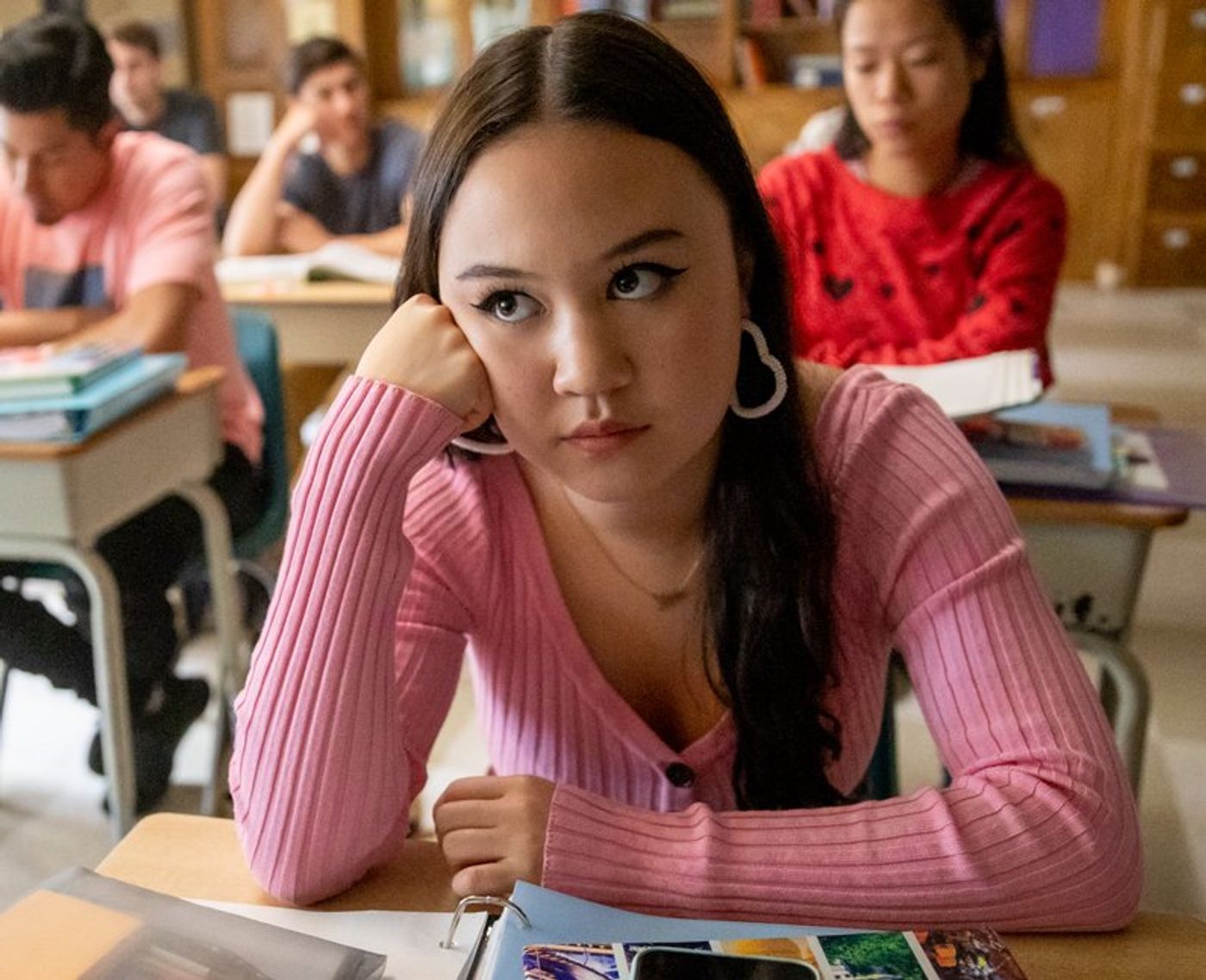BWW Blog: Someone Like Me - My First Musings on Dash and Lily & Grand Army
I hope shows like Dash & Lily or Grand Army aren’t passing fads, but stepping stones to a different kind of entertainment industry.

Over the past few days, I've begun watching two new shows with normalized Hapa characters-one being Dash & Lily, a Christmas rom-com series in NYC, and the other being Grand Army, a series about a diverse group of kids at a school in Brooklyn. And it's a rare feeling to suddenly see someone like me with a family like me, completely normalized and able to have romance or a dramatic high school life, which used to seem out of reach when I was young. When I watched Grand Army for the first time, my mouth dropped open in shock as Amalia Yoo's character gave a presentation on Chinese Jews, hoping to feel even a tiny sense of belonging with her two distinct identities. Before this, I had never, ever seen an Asian Jew represented on the screen, and I had never heard a show talk about those mixed feelings. So even though it was brief, I felt like Amalia's character and I understood each other when a white, half Jewish man told her she wasn't really "a part of the tribe" or when the other Chinese girls at school made fun of her for not knowing Chinese.
As for Dash and Lily, I became emotional seeing Lily's Christmas love story begin in New York, and there were two reasons why.
Reason one: Because I miss New York City. So much.
Reason two: Because I had never really seen a Christmas show with someone who looked so much like me and shared an Asian identity similar to mine.
They both suddenly made me feel like the world is beginning to open up, that it might be possible for someone like me to be in shows like this, talking about Judaism as an Asian person, or frolicking through the streets of New York, ready for my Christmas love story... But, there was something else. An unusual feeling. A feeling that simmered within me, and no matter how hard I attempted to maintain my control over it, to put the lid on and push it aside, it only became stronger.
You see, I kept having the thought that these actresses have replaced me. And this, this is not how I want to feel. At all. I'm so happy that there's representation for Asian/Hapa actors, so I kept questioning why this feeling was popping up. I suddenly remembered friends that had told me similar feelings, and I realized what was happening.
 These feelings pop up because in a world where representation is few and far between for Asians and other BIPOC actors, it's easy to fall into this trap of feeling replaced. It's easy to feel like, well that's it, Hollywood has gotten over the fad now. They have checked off that one box for representation, and now they will move on with normalcy. Normalcy, meaning white, cis, straight, and able bodied.
These feelings pop up because in a world where representation is few and far between for Asians and other BIPOC actors, it's easy to fall into this trap of feeling replaced. It's easy to feel like, well that's it, Hollywood has gotten over the fad now. They have checked off that one box for representation, and now they will move on with normalcy. Normalcy, meaning white, cis, straight, and able bodied.
That's why these feelings are there.
I think it's easy to feel that way because the amount of tv shows, Christmas movies, rom coms, and coming of age stories, I've seen with these "standard" characters are endless; they quite honestly feel never ending, and then, once in a while, I'll come across a rare gem. A moment of coming across a bright light, like that big Christmas tree at Rockefeller center. It's bright, it can spring feelings of joy, but you only see it for a certain amount of time each year. Actually, for diverse representation, we're lucky if we even get that. It's once in a blue moon.
And so, yes, after seeing these shows and my favorite show PEN15, I suddenly felt like "my brand" has now been overdone, making my chances slim to none. But... why is it that I see my race as a trend, a brand? Because I'm not the norm? So here's the question Hollywood and Broadway... if a person isn't the "normal," the default (again, meaning white, cis, straight, and able bodied), why are they deemed as unusual to you?
This is what needs to change. And I hope this is something everyone is aware of by now. If not, you've got to do some research and self reflecting.
I know the topic of representation is a common thread in my blogs, but I'm not sorry for talking about it, because it's something we shouldn't stop talking about. I know there's some major change happening in the industry as well as our society, which is something I'm glad about. But it's not enough. Even with these new shows, the writers weren't even BIPOC, which seems apparent to me in parts of Grand Army (granted, I haven't watched the entire show yet), when the cis white male characters say a multitude of microagressions and one of the leads does nothing to keep them in check. I also talked about this in my Mulan blog, but if it isn't obvious by now, we not only need representation among actors, but we also need it behind the scenes. We need more BIPOC stories, LGBTQ stories, and stories around people with disabilities; we need more so our identities are not constantly deemed as being on the outer fabrics of society as we grow up and live in this world.
So I hope shows like Dash & Lily or Grand Army aren't passing fads, but stepping stones that dig deep into the inner workings to make a different kind of entertainment industry. I hope the fight for more diverse representation continues, and I hope that one day, those deemed as "not normal," or someone like me, won't have to constantly tell people what my ethnicities are because, oh yeah, my identity is common among those Hanukkah themed rom coms (hint, hint, Netflix).
Videos


